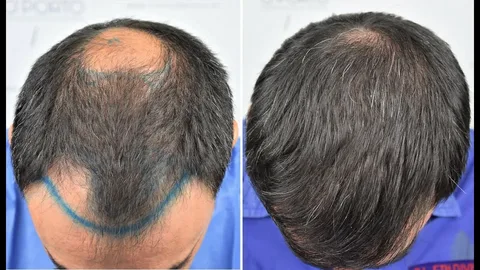Hair isn’t just an accessory; it’s an integral part of identity, personality, and self-image. When it begins to thin or disappear, the emotional toll can often be heavier than the physical change itself. For many, hair loss triggers a cycle of anxiety, low self-esteem, and social withdrawal; feelings that go far beyond vanity.
Fortunately, as medical science evolves, so does understanding of how deeply hair impacts emotional well-being. Restoring hair not only renews appearance; it often helps rebuild confidence, self-assurance, and emotional stability. Hair transplants in Mumbai are at the forefront of this progress, helping patients both medically and emotionally by combining advanced procedures with compassionate, confidence-restoring care.
Why Hair Loss Affects More Than Appearance
Hair is symbolic. It represents vitality, youth, and confidence. Culturally, it’s tied to attractiveness and social perception. Losing it can create a feeling of diminished self-worth – particularly in societies where appearance influences first impressions.
Psychologists categorise hair loss as a “visible identity stressor” – a change that affects how individuals perceive themselves and how they believe others see them. This often leads to self-consciousness, avoidance behaviours, or even depression.
The Emotional Stages of Hair Loss
People experiencing hair loss often go through emotional phases similar to grief:
- Denial: “It’s just seasonal shedding.”
- Frustration: “Why is this happening to me?”
- Anxiety: “What will others think?”
- Acceptance or Action: Seeking professional help.
Understanding these emotional shifts is vital. Left unchecked, they can affect mental health, productivity, and relationships.
Recognising hair loss early and exploring solutions helps break this emotional cycle before it deepens.
The Social and Professional Impact
In many cultures, thick, healthy hair is associated with confidence and vitality. Its absence can alter how people are perceived professionally and socially.
Men report feeling less assertive at work or in relationships, while women often struggle with self-image due to societal expectations of femininity. Some studies reveal that individuals with noticeable hair loss experience higher levels of social anxiety and reduced participation in public activities.
However, when hair restoration is achieved, the positive shift in self-perception is often immediate – bringing renewed enthusiasm and engagement in daily life.
The Link Between Stress and Hair Loss
Ironically, stress not only results from hair loss but also contributes to it. Elevated cortisol levels disrupt the hair cycle, pushing follicles into premature rest. This leads to conditions like telogen effluvium, where shedding increases dramatically after emotional distress or major life changes.
This feedback loop – stress causing hair loss, and hair loss causing more stress – can quickly spiral. Breaking it requires addressing both physical and psychological dimensions simultaneously.
Clinics like Bloom Hair Transplant emphasise this dual approach: combining medical treatments with counselling and holistic guidance to help patients rebuild both appearance and confidence.
Regaining Confidence Through Restoration
For those who decide to seek professional treatment, the transformation often extends far beyond hair growth. The physical restoration of a hairline or scalp density often triggers renewed optimism, improved posture, and higher self-esteem.
Hair restoration – whether through transplant, PRP therapy, or regenerative methods – provides visible, tangible progress that reminds patients they’re in control again. This empowerment alone has a profound psychological impact.
It’s not just about vanity; it’s about reclaiming a sense of normalcy and identity.
The Science of Self-Perception
Research in body image psychology shows that individuals who undergo appearance-related procedures often report measurable improvements in mental well-being. In the context of hair restoration, self-esteem scales tend to rise significantly within 6 months post-procedure.
Patients describe feeling “like themselves again,” which translates into greater confidence in social interactions, public speaking, and even dating life. This ripple effect underscores how emotional health and physical restoration are deeply intertwined.
The Role of Support and Awareness
Hair loss can be isolating, but support – both emotional and professional – makes a difference. Open conversations about the issue reduce stigma and encourage early intervention.
With increased awareness, more people view hair restoration as an act of self-care rather than insecurity. Discussing experiences, sharing journeys, and seeking professional advice early helps normalise the topic, especially among younger adults who may feel alone in their experience.
Holistic Healing Beyond the Procedure
Confidence restoration isn’t limited to medical treatment; it’s reinforced by healthy lifestyle changes. Balanced nutrition, regular exercise, mindfulness, and proper sleep improve hormone balance and circulation – key factors in maintaining results.
Professional restoration treatments, paired with these habits, create sustained improvements in both hair and emotional health. Clinics such as Bloom Hair Transplant Clinic encourage patients to see restoration as part of a larger self-care journey, not a one-time fix.
Restoring More Than Hair
Hair restoration is far more than a cosmetic upgrade; it’s a step toward emotional healing. The process redefines how individuals view themselves, replacing self-doubt with confidence and optimism.
By treating the root cause medically and nurturing psychological well-being, patients don’t just regain their hair; they rediscover balance, assurance, and self-worth. Because in the end, true transformation begins not in the mirror, but in how you feel about the person reflected there.
